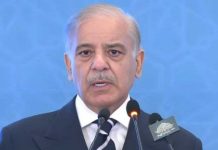KARACHI, JUL 26: /DNA/ – The Pakistan Afghanistan Joint Chamber of Commerce and Industry (PAJCCI), under the leadership of Chairman Muhammad Zubair Motiwala, warmly welcomes the signing of the Preferential Trade Agreement (PTA) between Pakistan and Afghanistan on July 23, 2025. Formalized by Pakistan’s Commerce Secretary Jawad Paul and Afghanistan’s Deputy Minister of Industry and Commerce Mullah Ahmadullah Zahid, this agreement reduces tariffs on key agricultural goods such as Afghan grapes, pomegranates, apples, and tomatoes, and Pakistani mangoes, oranges, bananas, and potatoes from over 60% to 27%, with a special 22% rate for tomatoes and potatoes. PAJCCI acknowledges this progress, which builds on discussions from the Special Investment Facilitation Council (SIFC) meeting on December 17, 2024. This milestone reflects PAJCCI’s long-standing demands, pursued through persistent efforts and reinforced during the SIFC meeting, marking a significant step toward enhanced bilateral trade.
Despite this encouraging step, PAJCCI President Juanid Makda remains concerned about persistent challenges hindering bilateral and transit trade, which has declined from $2.5 billion at its peak to $1.2 billion in 2024. As outlined in our recent letter to the Minister of Interior, Mr. Mohsin Naqvi, these issues include the lack of a consistent, long-term trade policy from the Ministry of Commerce (MoC) and State Bank of Pakistan (SBP), creating uncertainty for traders and discouraging investment. Payment disputes, driven by banking inefficiencies, have led to undue pressure from the Federal Investigation Agency (FIA) on legitimate businesses, affecting trader confidence. Temporary Electronic Import Form (EIF) waivers, without a permanent system, complicate trade planning, while delays in visa issuance for Afghan businessmen are highly discouraging, streamlining the process could foster greater economic collaboration. The Khyber Pakhtunkhwa government’s Infrastructure Development Cess (IDC), though reduced to 1%, and continues to burden transit trade, contrary to international commitments, diverting some trade to routes like Chabahar, Iran. Statutory Regulatory Orders (SROs) from October 2023, including a 10% processing fee on Afghan goods, have significantly reduced trade volumes, despite recent relaxations. Frequent Torkham border closures due to security and administrative issues further challenge cross-border commerce.
Makda emphasizes the need for private-sector representation from both chapters (Pakistan & Afghanistan) in the newly formed PTA Implementation Committee, led by MoIC (Afghanistan) and MoC (Pakistan). This committee, with representatives from Customs and Agriculture Ministries meeting monthly, would benefit greatly from PAJCCI’s insights as a voice for businesses facing these challenges, ensuring practical and effective solutions.
To unlock the $7 billion trade potential, PAJCCI encourages collaborative efforts to develop a long-term trade policy with MoC and SBP, streamline payment processes to resolve FIA concerns, establish a permanent EIF waiver system, simplify visa processes for Afghan Businessman, exempt transit trade from IDC, digitize trade processes through SBP and Pakistan Single Window (PSW), and review restrictive SROs.
Under the leadership of Chairman Muhammad Zubair Motiwala, and Co-Chairman Khan Jan Alokozai PAJCCI remains committed to working with the SIFC, MoC, Ministry of Interior, and SBP, and to address these challenges and strengthen Pakistan’s role as a vital trade hub for Afghanistan and Central Asian Republics. We look forward to a follow-up dialogue to ensure meaningful progress. PAJCCI extends heartfelt congratulations to the SIFC, Mr. Jam Kamal Khan – Minister, Ministry of Commerce, Mr. Mohsin Naqvi – Minister Ministry of Interior, and all stakeholders for their pivotal roles in achieving this milestone, adding a vital spark to Pakistan-Afghanistan trade relations.

















